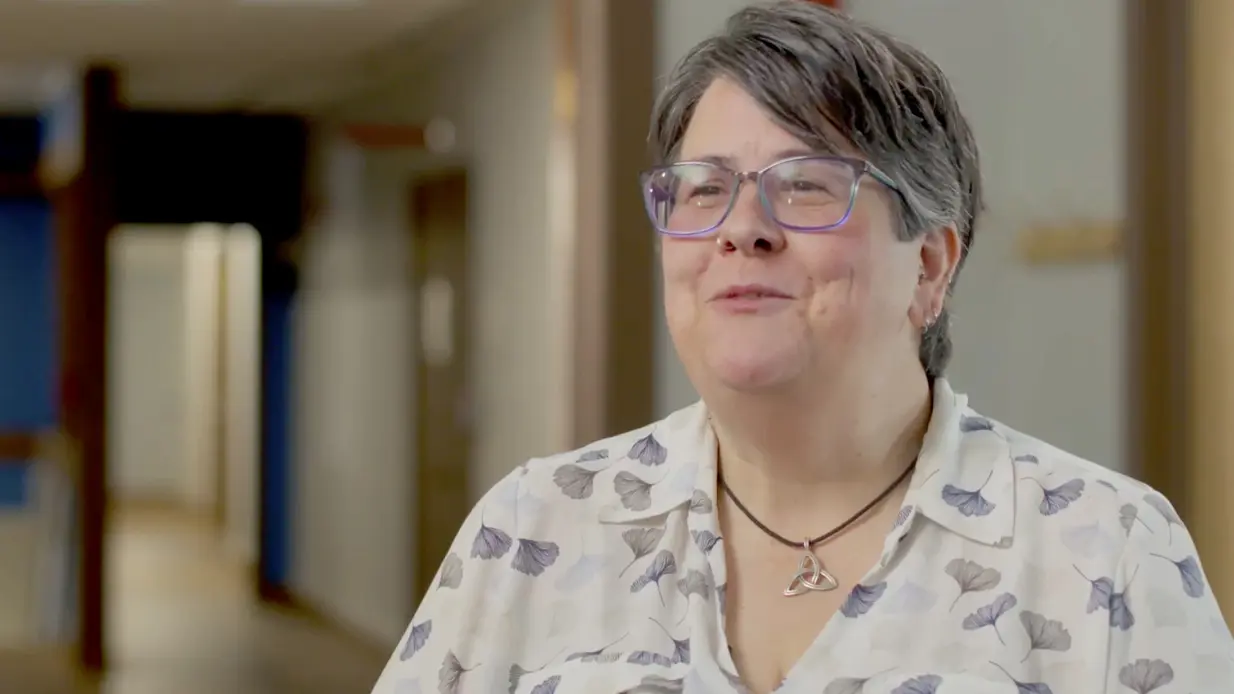- Home (US)
- Voices of CPI Blog
- Human Services
- Proactive Safety: How the Southwest Idaho Treatment Center Reduced the Need for Restraints with CPI Training
Proactive Safety: How the Southwest Idaho Treatment Center Reduced the Need for Restraints with CPI Training

The Southwest Idaho Treatment Center (SWITC) stands as a cornerstone of care for adults with intellectual disabilities across the state. When communities lack the appropriate housing for individuals with severe intellectual disabilities or those exhibiting potentially dangerous behavior, SWITC is the trusted resource. Their dedicated staff assists in the rehabilitation process, helping individuals readjust to daily routines and reintegrate into the community safely and healthily.
Facilities like SWITC, which support diverse populations across the U.S., face significant challenges. Staff often encounter clients exhibiting a range of behaviors that can escalate into dangerous situations, leading to injuries and an increase in workers' compensation claims.
To navigate these growing challenges, SWITC partnered with CPI to implement a sustainable training solution. The goals were clear: enhance staff safety, reduce the need for restraints, decrease costs associated with lost work hours and workers’ compensation claims, and, most importantly, create a safer pathway to independence for their clients. This partnership has become a pivotal element of SWITC’s long-term vision for care.
A Customized Approach to De-escalation Training
In 2019, SWITC made a strategic investment in CPI’s scalable de-escalation and crisis prevention training. The objective was to provide all staff members, regardless of their role or risk level, with relevant training that directly applies to their daily interactions.
The training with SWITC emphasized reducing the need for restraints, focusing on proactive verbal intervention skills that form the foundation of Nonviolent Crisis Intervention® and NCI™ With Advanced Physical Skills programs.
“Our floor staff and anybody who does direct client care have advanced physical skills. Our administration team and groundskeeping landscape team, that don’t deal directly with the clients, are generally taught verbal [intervention skills] and disengagements,” explains SWITC’s Health and Safety Specialist, Toby “T.J.” Barr.
This approach has done more than just teach de-escalation techniques; it has built confidence among SWITC staff, enabling them to work more productively and effectively. Strengthening these skills has also reinforced the critical relationships between staff and clients, aligning with SWITC’s goal of fostering rapport and trust.
Barr emphasizes the importance of these relationships in the success of their training efforts:
"When I'm teaching the CPI classes, the better relationship you have with the client, the more likely you're going to be able to stop that behavior early before it becomes violent."
Measurable Results: Reduced Restraints and Increased Safety
CPI’s customizable training approach facilitates smooth implementation, improves team collaboration, and offers a cost-effective solution to promote a culture of safety.
The impact of our system-wide de-escalation training and SWITC’s commitment to staff and client safety is evident in the significant return on investment they have experienced.
- 65% Reduction in Workers’ Compensation Claims: resulted in significant financial savings.
- 75% Decrease in Work Hours Lost: attributed to fewer injuries during escalated client interactions and increased staff productivity.
- 66% Reduction in Restraints: achieved through proactive de-escalation skills and strengthened client-staff rapport.
- 28% Decrease in Client Assaults: achieved within two years of investing in customized training, underscoring the efficacy of CPI’s de-escalation techniques.
In a field where staff turnover is a common challenge, CPI training helped SWITC increase its retention rates. “The investment in CPI training has helped us retain staff because they feel equipped with the tools they need,” reflects SWITC’s Administrative Director, Jamie Newton. “When staff know what to do in a crisis situation and have the support they need, they’re more likely to stay.”
“You can't put a number on that, on staff feeling safer, staff feeling like they want to be here,” says Newton.
Hear more about SWITC’s success with CPI.
Integrating System-Wide De-escalation Skills into SWITC’s Culture
With over 450 employees trained and 7 Certified Instructors embedded across the facility, CPI’s de-escalation skills and techniques are woven into SWITC’s team culture and safety policies. These skills are now a key part of new employee onboarding and are reinforced through regular program refreshers to ensure ongoing effectiveness.
CPI Training for Human Services
CPI offers a full suite of de-escalation training solutions for human services facilities that support child welfare, intellectual development disabilities, juvenile services, mental health, psychiatric hospitals, social services, and more.
Learn MoreThe Long-Term Vision: Sustainable Safety
Reflecting on their partnership, Barr shares his pride in the staff’s increased skills and confidence: “Every time I'm watching film of a client interaction and I see where things could have gone wrong, but my clients or my staff did everything right, and they were able to diffuse the situation, it gives me a lot of pride as their instructor being able to see when they were successful.”
SWITC’s partnership with CPI is a testament to the power of proactive training for human services organizations in achieving sustainable safety. By investing in skills that prioritize prevention and de-escalation, SWITC has—and continues to—reduce the need for restraints, improve safety, reduce costs, and positively impact the well-being of its clients and staff. SWITC’s story truly highlights how compassion and effective de-escalation training can foster a safer workplace.
Take the Next Step to Enhance Safety and Care at Your Facility
Learn how CPI can help you achieve measurable results, just like SWITC.
Let's Connect